You Spoke. We Listened.
Action steps and results from the first Columbia University Facilities and Operations campus-wide survey
Image Carousel with 6 slides
A carousel is a rotating set of images. Use the previous and next buttons to change the displayed slide
-
Slide 1: Improvements to the campus environment include new benches near the Butler lawns.
-
Slide 2: CUFO increased student lounge space in Carman, pictured, and Wien halls.
-
Slide 3: Accessibility upgrades include new sloping pathways around Butler Library.
-
Slide 4: The newly renovated Jamail Lecture Hall at Pulitzer Hall. (Photo: Architect – LTL Architects; Michael Schissel, photographer)
-
Slide 5: CUFO custodial workers polish the floors in the lobby of University Apartment Housing.
-
Slide 6: Repairs being made to sections of the brick walkways of College Walk to reduce undulation and replace damaged bricks.
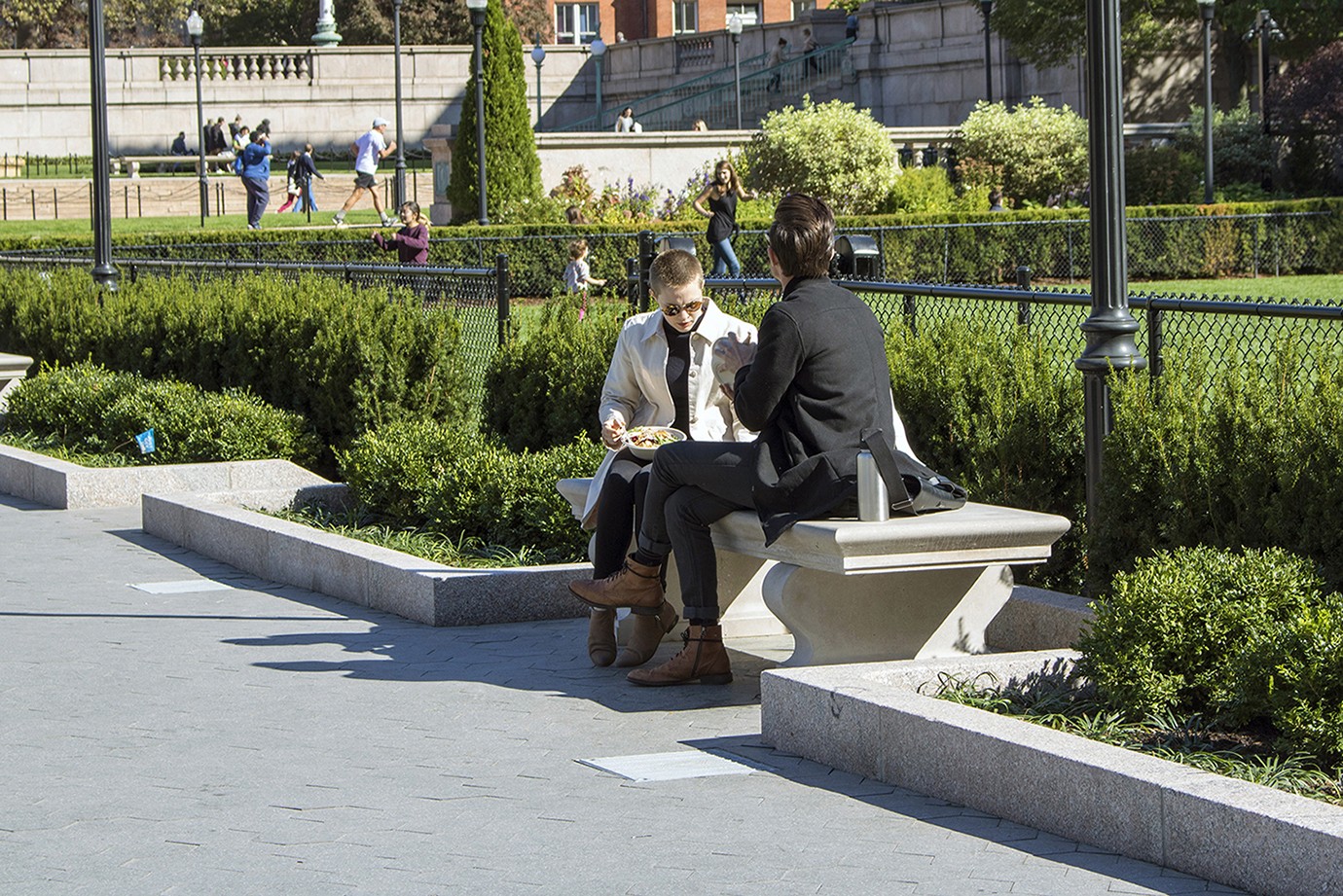
Improvements to the campus environment include new benches near the Butler lawns.
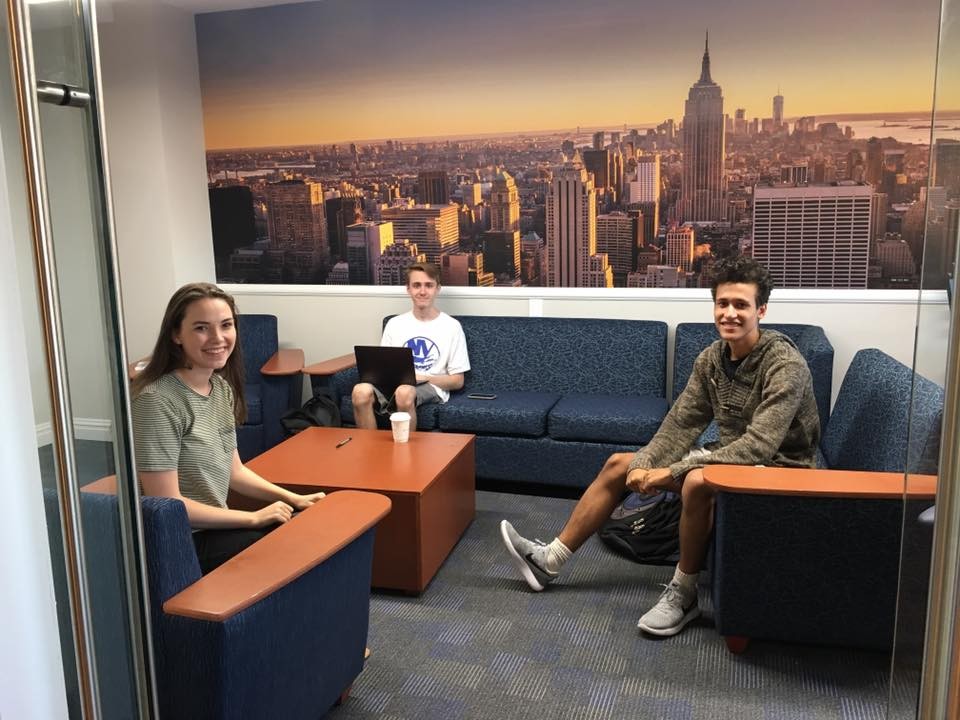
CUFO increased student lounge space in Carman, pictured, and Wien halls.
Accessibility upgrades include new sloping pathways around Butler Library.
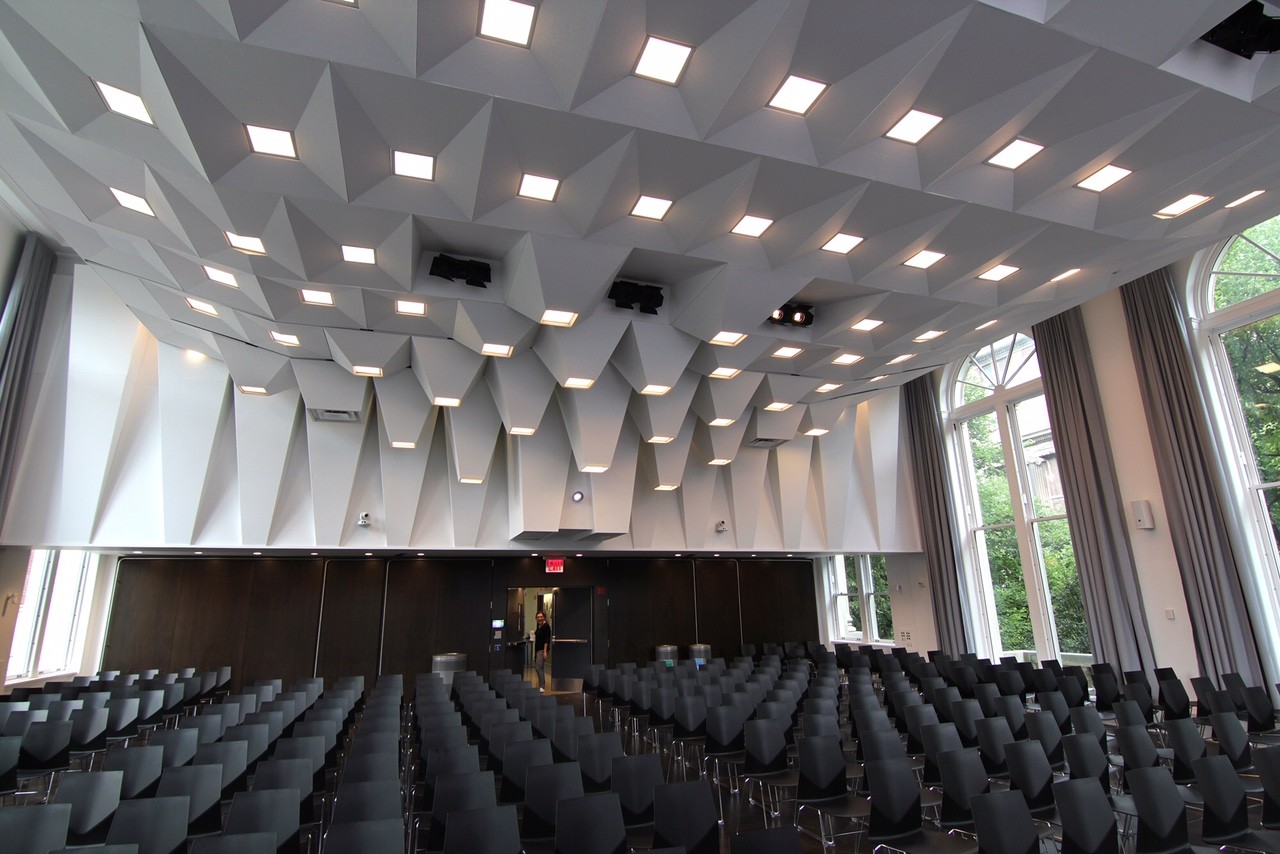
The newly renovated Jamail Lecture Hall at Pulitzer Hall. (Photo: Architect – LTL Architects; Michael Schissel, photographer)
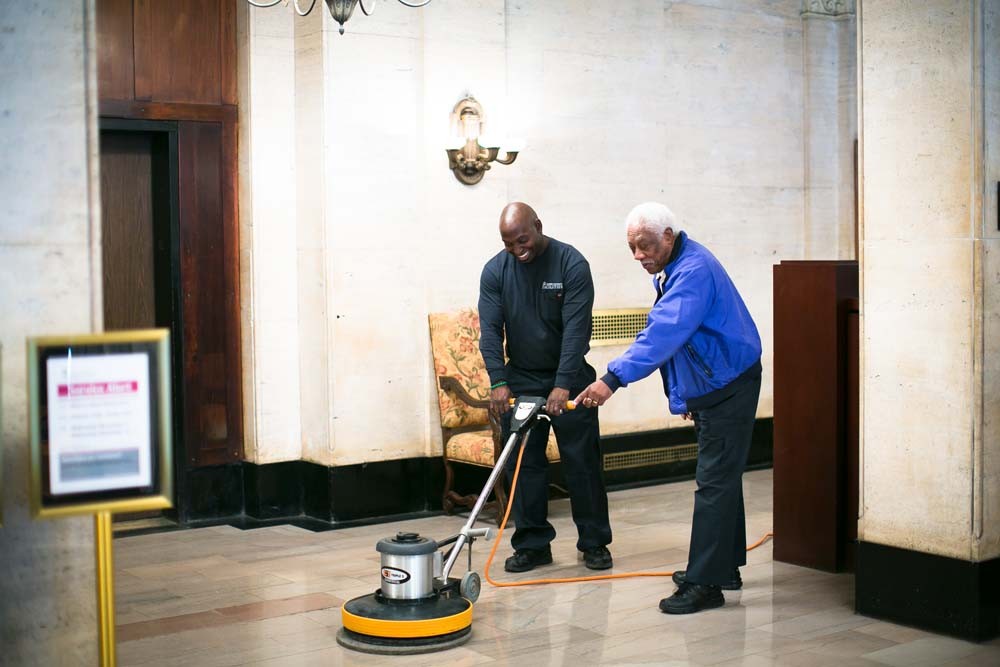
CUFO custodial workers polish the floors in the lobby of University Apartment Housing.
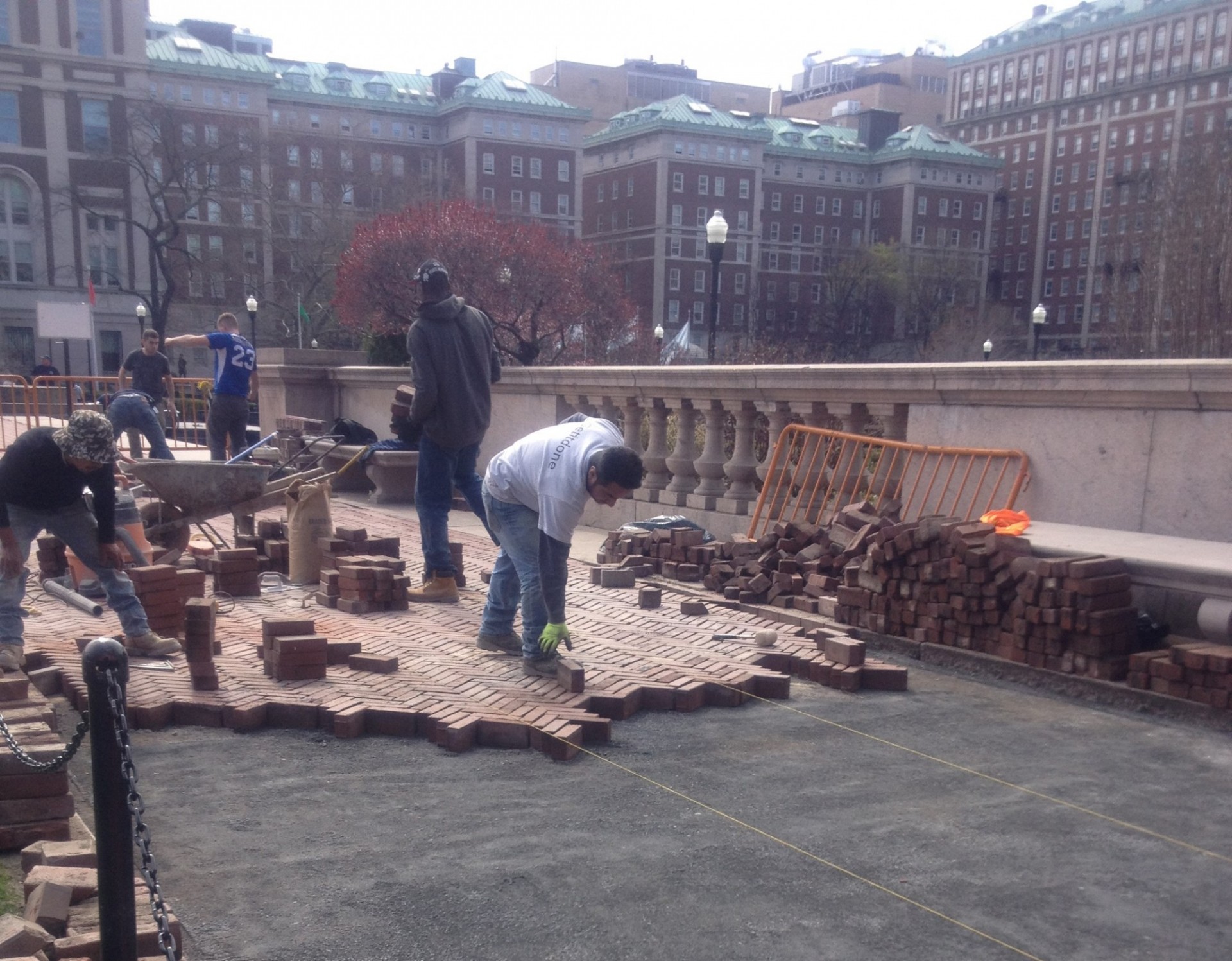
Repairs being made to sections of the brick walkways of College Walk to reduce undulation and replace damaged bricks.
One year ago, Facilities and Operations launched its first annual survey to measure the effectiveness of the services that it performs as perceived by students, faculty and staff across the Morningside and Manhattanville campuses.
The 2016-2017 survey yielded a high level of engagement with nearly 3,000 responses, and of those respondents, more than 60 percent provided specific, detailed comments on topics ranging from restroom cleanliness, heating and cooling issues, staff appreciations and more.
Among the results, respondents gave high marks to the maintenance of campus grounds (96 percent agreed Columbia University effectively maintains grounds and outdoor spaces) and to Public Safety (96 percent of respondents also agreed that they feel safe on Columbia’s campus).
Other results pointed to opportunities for improvement, with 78 percent of people responding saying that University buildings are effectively cleaned and maintained, and only 71 percent who said routine maintenance service is performed effectively.
Read this two-page recap for a summary of the responses on all topics from the survey.
The survey results provided valuable data and direction across Facilities and Operations functional units to implement improvements—both large and small—throughout the organization.
Here is a sampling of what Facilities and Operations has done over the past year to address some of the specific and general feedback provided in the survey.
- Simplified processes and improved responsiveness, including expanded use of our work order system to proactively monitor for response times, surveys at the completion of all maintenance work orders to gauge satisfaction, and simplified billing of graduate student apartments through student financial services.
- Grounds upgrades, including paver replacement on College Walk in select areas to better level the path and help improve drainage; a new coating on the Pupin deck that makes the surface less slippery and will be more durable through the winter; and new landscaping, Wi-Fi and perimeter benches along the revamped Butler Lawn.
- New initiatives to address restroom cleanliness, with increased cleaning frequencies in high-trafficked areas, adjustments in cleaning scheduling to account for class schedules and night classes, and increased custodial staffing in the highest-trafficked academic buildings for more frequent restroom cleanings.
- Disability access improvements, most notably the reconstruction of Butler Plaza, which replaced steps and temporary metal ramps from the east and west approaches to the library’s main entrance with permanent, accessible entryways, and added a permanent ramp from the northern approach. Other notable access improvements included an accessible room being added to each renovated floor at Carman Hall.
Many comments addressed projects which were planned or already underway at the time of the survey:
- Classroom and building improvements included renovations to large lecture halls in Jerome L. Greene Hall/Law School and Pulitzer Hall, and structural improvements to classrooms to allow for more flexibility of the types of classes that can be held in them. CUFO also made historic restorations consistent with the original McKim, Mead and White intentions to common areas in Avery and Mathematics.
- Preventative maintenance and heating, ventilation and air conditioning improvements, including investments at Mathematics, Kent Hall, Dodge Hall, Miller Theater, and new air handling units for Schermerhorn and Schermerhorn Extension; heating controls and exhaust system improvements at Prentis Hall; repair or replacement of building management system controls in Havemeyer, Schermerhorn, Hamilton, Philosophy, and the International Affairs Building; and completion of the Pupin core infrastructure project, which upgraded the building’s mechanical, electrical, plumbing and life safety systems for added capacity to support future modernized floor-by-floor renovations throughout Pupin.
- Undergraduate residence hall renovations in Carman Hall, Wien Hall and the East Campus townhouses, including increased student lounge space in Carman and Wien.
- Public Safety initiatives in Manhattanville, with the opening of the Public Safety Operations Center in Manhattanville at 3270 Broadway, the launch of a safety escort service for building occupants at the Manhattanville campus, and hosting of an electronic tattooing, electronics disposal and shred fest event at the Small Square in front of the Lenfest Center for the Arts.
- Continued focus on sustainability and environmental impact, including increased composting, textiles, and electronic recycling in University Apartment Housing; expansion of the Zagster bike share program to Manhattanville, more water bottle filling stations at water fountains, and a program to facilitate donations of used furniture to reduce trash, along with the rollout of the University Sustainability Plan.
In addition to these actions, other improvements are planned for future implementation based on the survey feedback.
While much has been done over the last year, Facilities and Operations is launching the second iteration of the survey. This year’s survey is designed to measure initial improvements since last year’s survey while also soliciting feedback from new participants to drive a new list of improvements and goals.
The new survey launches on November 15 and will close on December 15, 2017.